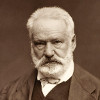“ To think well, it is not enough that a man has ideas clear and distinct in his thoughts, nor that he observes the agreement or disagreement of some of them; but he must think in train, and observe the dependence of his thoughts and reasonings upon one another. ”
John Locke, An Essay Concerning Human Understanding (1689). copy citation
| Author | John Locke |
|---|---|
| Source | An Essay Concerning Human Understanding |
| Topic | agreement disagreement |
| Date | 1689 |
| Language | English |
| Reference | |
| Note | |
| Weblink | http://www.gutenberg.org/cache/epub/10616/pg10616-images.html |
Context
“The words whereby it signifies what connexion it gives to the several affirmations and negations, that it unites in one continued reasoning or narration, are generally called PARTICLES: and it is in the right use of these that more particularly consists the clearness and beauty of a good style. To think well, it is not enough that a man has ideas clear and distinct in his thoughts, nor that he observes the agreement or disagreement of some of them; but he must think in train, and observe the dependence of his thoughts and reasonings upon one another. And to express well such methodical and rational thoughts, he must have words to show what connexion, restriction, distinction, opposition, emphasis, &c., he gives to each respective part of his discourse.”
source


